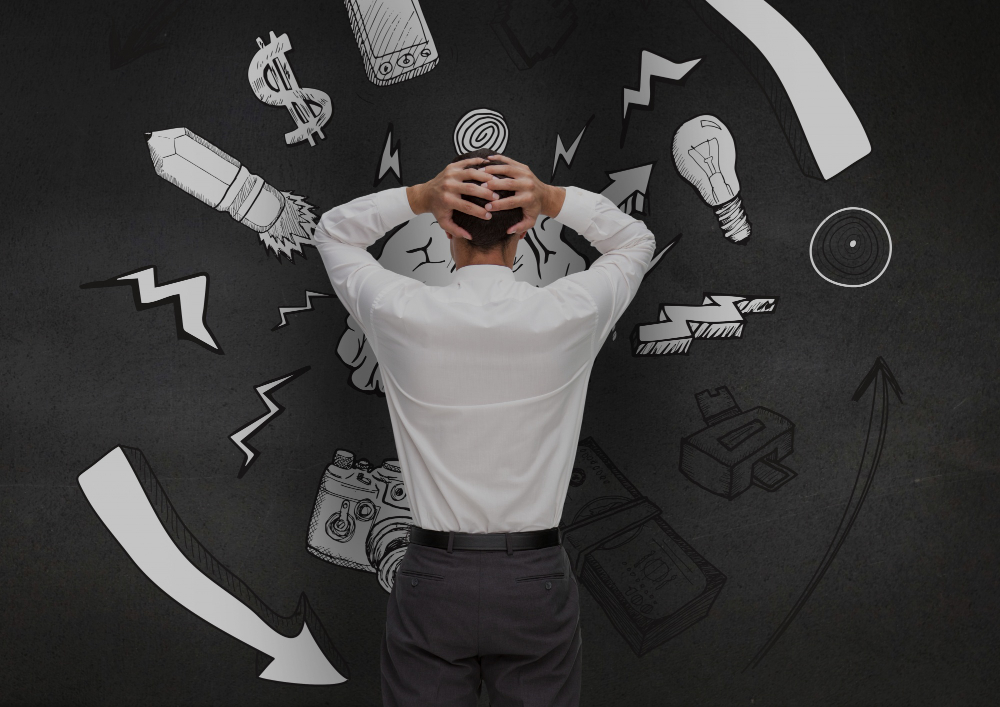Stress is more than just an emotional reaction to a busy schedule or life’s challenges—it’s a powerful physiological response that can impact your entire body. While short-term stress can be helpful in urgent situations (the classic “fight or flight” response), chronic stress can silently take a toll on your physical and mental health.
In this blog, we’ll break down what stress does to your body, how it affects vital systems, and what you can do to manage it before it becomes harmful.
Understanding Stress: The Body’s Natural Alarm System
When you perceive a threat—whether real or imagined—your brain triggers a cascade of biological changes designed to prepare you for action. This is controlled by the hypothalamic-pituitary-adrenal (HPA) axis, which releases stress hormones like cortisol and adrenaline.
These hormones increase heart rate, elevate blood pressure, boost energy supplies, and sharpen focus. While this can be beneficial in the short term, persistent activation of the stress response has long-term negative consequences.
1. Brain and Mental Health
Stress has a direct impact on your brain’s chemistry, structure, and function:
- Memory and Concentration: High levels of cortisol can damage the hippocampus—the part of the brain responsible for memory—leading to forgetfulness and difficulty concentrating.
- Mood Disorders: Chronic stress is closely linked to anxiety, depression, and irritability due to imbalanced neurotransmitters like serotonin and dopamine.
- Sleep Disruption: Stress disrupts circadian rhythms, making it harder to fall asleep or stay asleep, which in turn worsens cognitive function and emotional stability.
🧠 Fact: Long-term stress can shrink areas of the brain involved in emotional regulation and decision-making.
2. Cardiovascular System
Your heart and blood vessels are highly sensitive to stress. Prolonged exposure to stress hormones increases the risk of:
- High Blood Pressure (Hypertension): Persistent elevation in stress levels forces the heart to work harder.
- Heart Disease: Stress contributes to inflammation, artery damage, and cholesterol buildup.
- Increased Risk of Heart Attack or Stroke: Especially in people with other risk factors like smoking or obesity.
❤️ Insight: Emotional stress can trigger cardiac events even in healthy individuals, a phenomenon known as “stress cardiomyopathy.”
3. Immune System
Initially, stress can boost immune function—but chronic stress has the opposite effect:
- Weakened Immunity: Your body becomes more vulnerable to infections, viruses, and inflammation.
- Delayed Healing: Wounds and illnesses take longer to recover when under stress.
- Increased Risk of Autoimmune Diseases: Chronic inflammation may lead to misdirected immune responses.
🛡️ Note: Stress doesn’t just make you more likely to catch a cold—it can also make chronic conditions like asthma, eczema, or IBS worse.
4. Digestive System
Stress directly affects your gut, often called the “second brain” due to its connection to your nervous system:
- Upset Stomach, Diarrhea, or Constipation: The brain-gut connection means stress can disrupt digestion almost immediately.
- Acid Reflux or Ulcers: Increased stomach acid and reduced protective mucus under stress can damage the digestive lining.
- Appetite Changes: You may overeat, undereat, or crave unhealthy “comfort” foods, leading to weight gain or nutritional deficiencies.
🍽️ Insight: Chronic stress can worsen gut conditions like irritable bowel syndrome (IBS) and Crohn’s disease.
5. Musculoskeletal System
When stressed, your muscles tense up to guard against injury:
- Chronic Muscle Tension: Leads to headaches, neck, shoulder, and back pain.
- Increased Risk of Injury: Muscle tightness reduces flexibility and increases strain during physical activity.
💪 Reminder: If you constantly feel sore or tense without physical exertion, stress could be the cause.
6. Endocrine and Reproductive Systems
Stress disrupts hormonal balance across the body:
- Hormonal Imbalances: Cortisol affects insulin, thyroid, and reproductive hormones.
- Sexual Dysfunction: Reduced libido, erectile dysfunction, and irregular menstrual cycles are common under stress.
- Fertility Issues: Chronic stress can impact ovulation and sperm production.
🔁 Fact: Stress-related hormone disruption may also affect skin, hair, and energy levels.
7. Skin and Appearance
Your skin often reflects your internal health:
- Acne, Psoriasis, and Eczema: These conditions worsen under stress due to inflammation and immune suppression.
- Hair Loss: Stress can trigger telogen effluvium, a condition that causes sudden hair shedding.
- Aging: Chronic stress accelerates cellular aging, causing premature wrinkles and dull skin.
🧴 Tip: A skincare routine can help—but it won’t fix stress-related breakouts without addressing the root cause.

How to Manage Stress Before It Harms You
Understanding how stress affects your body is the first step. Here are practical strategies to reduce and manage stress:
- Exercise Regularly: Physical activity releases endorphins and reduces cortisol.
- Mindfulness & Meditation: Techniques like deep breathing, yoga, and guided meditation calm the nervous system.
- Sleep Hygiene: Create a relaxing nighttime routine and aim for 7–9 hours of quality sleep.
- Healthy Diet: Choose anti-inflammatory foods rich in omega-3s, fiber, and antioxidants.
- Social Support: Talk to friends, family, or a therapist regularly.
- Time Management: Prioritize tasks, set boundaries, and avoid overcommitting.
Final Thoughts
Stress is inevitable—but how you respond to it makes all the difference. By understanding what stress is really doing to your body, you gain the power to take control of your health. Chronic stress is linked to a wide range of issues, from heart disease and mental health problems to digestive issues and weakened immunity. However, with the right tools and awareness, you can manage stress effectively and prevent it from taking over your life.
Your body is always communicating—make sure you’re listening.









